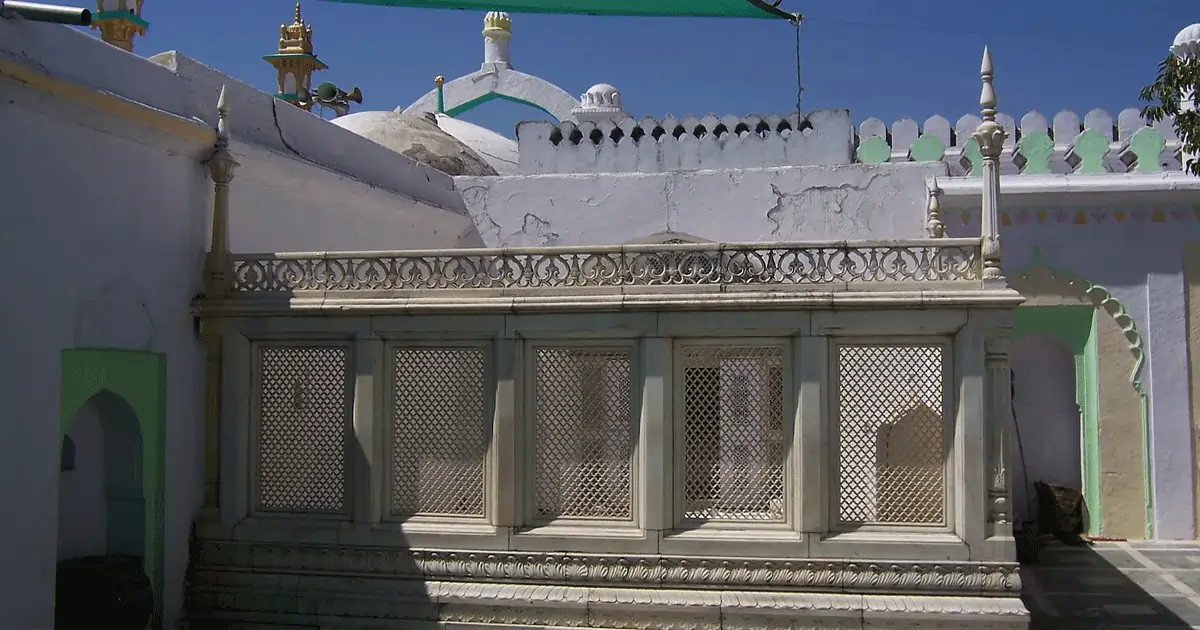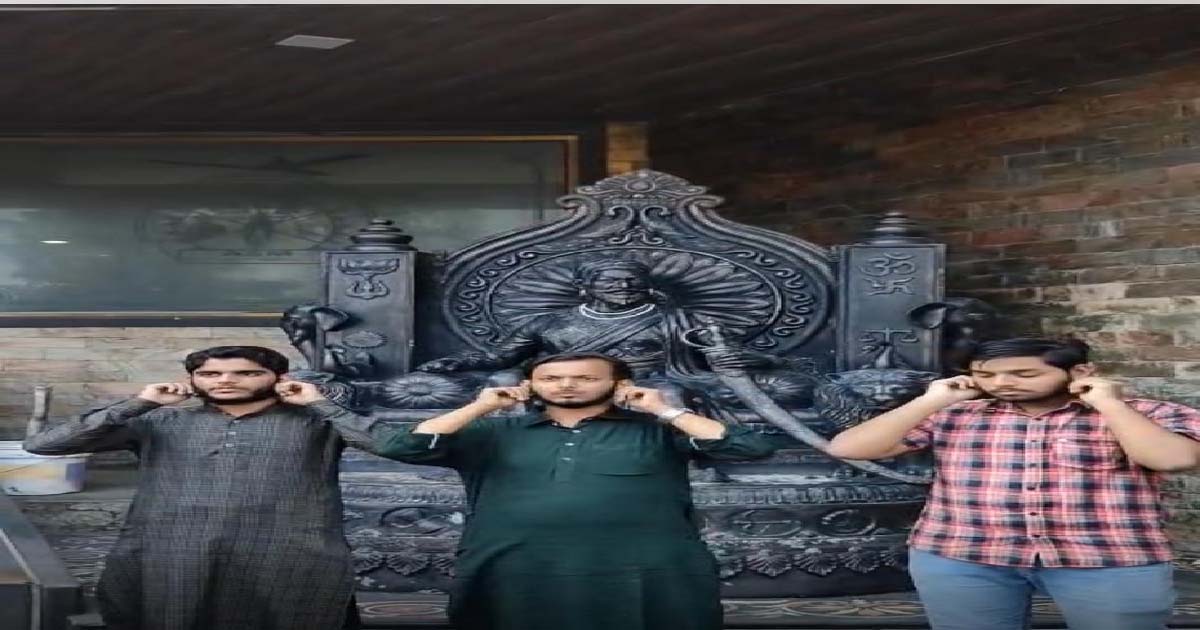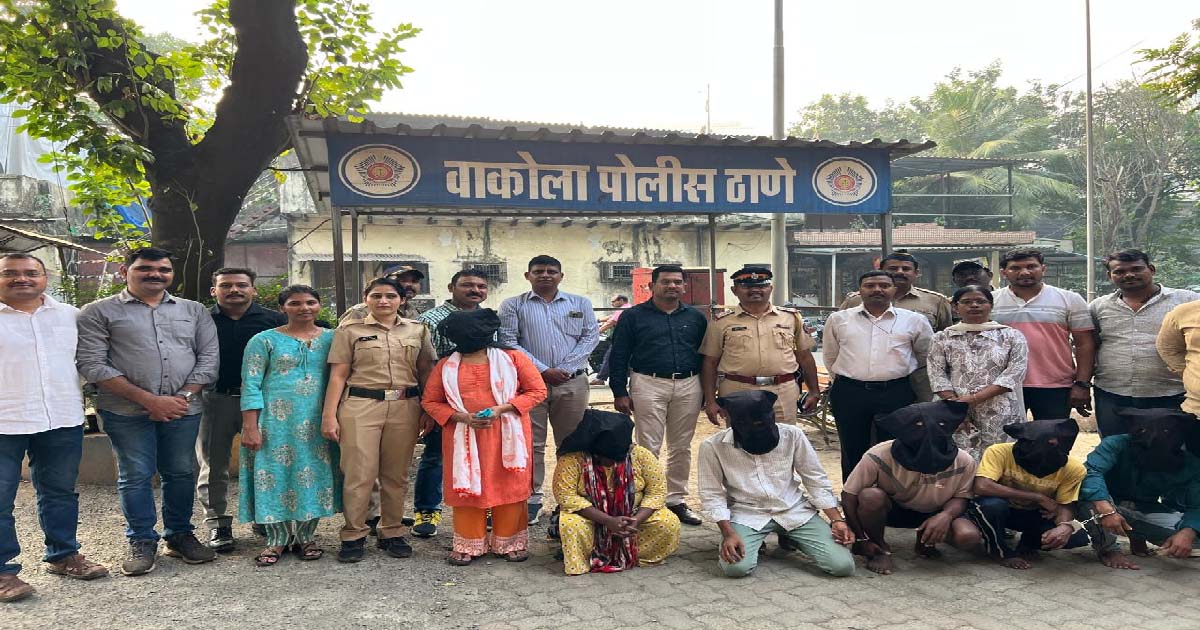Maharashtra
Aurangzeb’s Tomb Cannot Be Demolished By Maharashtra Govt Despite Widespread Protests & Public Demands; Here’s Why

Nagpur: The recent violence in Nagpur, triggered by demands for the demolition of Aurangzeb’s tomb in Maharashtra’s Khuldabad, has intensified debates over the monument’s existence. Clashes erupted on March 17 after protests by Bajrang Dal and VHP, who called for the removal of the tomb, citing Aurangzeb’s oppressive rule. The unrest escalated, leading to violent confrontations, police injuries and curfews in affected areas.
However, despite the growing demand, the Maharashtra government does not have the legal authority to demolish the tomb. The site is protected under the Ancient Monuments and Archaeological Sites and Remains Act (AMASR Act), 1958, and falls under the jurisdiction of the Archaeological Survey of India (ASI), making its demolition legally impossible without central approval.
What is the AMASR Act, 1958?
The Ancient Monuments and Archaeological Sites and Remains Act, 1958 was enacted to preserve sites of historical and cultural significance. Under this Act, any monument classified as a ‘Monument of National Importance’ is protected from alteration, damage or destruction. The ASI, which functions under the Union Ministry of Culture, is responsible for maintaining these monuments.
Once a monument is notified under this Act, neither state governments nor local authorities can modify or demolish it. Only the Central Government, through a detailed legal and administrative process, can decide to de-notify such sites.
Why Is Aurangzeb’s Tomb A Protected Monument?
Aurangzeb, the sixth Mughal emperor, died in 1707 in Ahmednagar (now Ahilya Nagar) and was buried in Khuldabad near the dargah of Sheikh Zainuddin, his spiritual guide. His tomb is considered historically and culturally significant for several reasons:
– Historical Importance – Aurangzeb ruled for nearly 50 years, shaping India’s political and cultural history. His burial site remains part of India’s historical heritage.
– Architectural Value – Unlike grand Mughal tombs, Aurangzeb’s simple resting place reflects his lifestyle and is an example of minimalist Mughal architecture.
– Cultural Significance – The tomb is part of the larger Khuldabad complex, which houses several important Sufi shrines and historical figures’ graves.
– Preservation of Heritage – The ASI protects such sites to maintain historical integrity and prevent the destruction of India’s cultural legacy.
Can the Maharashtra Government Order Its Demolition?
No, the Maharashtra government cannot order the demolition of Aurangzeb’s tomb because:
1. It is a National Monument – The site is classified under the AMASR Act, making it a Monument of National Importance.
2. Only the Central Government Has Authority – The state government has no jurisdiction to alter or de-notify the tomb. Any such decision lies with the Union Ministry of Culture.
3. Legal Consequences – Any attempt to demolish the tomb would be unlawful and could lead to legal action against the state government.
4. International Reputation – Destroying a protected historical site could damage India’s global image as a country that values its diverse heritage.
What Has The Maharashtra Government Said?
During the inauguration of Maharashtra’s first Shivaji Maharaj temple earlier this month, Chief Minister Devendra Fadnavis acknowledged public sentiments against Aurangzeb but stated that legal constraints prevent any action against the tomb. “It is protected by the ASI, and we must follow the law,” he said. However, he assured that Maharashtra would only glorify Shivaji Maharaj, not Aurangzeb.
Despite political and public pressure, Aurangzeb’s tomb remains protected under Indian law. The Maharashtra government lacks the authority to demolish it, as it is a Monument of National Importance under the ASI. Any decision regarding its status rests solely with the Central Government. The Nagpur violence has intensified the debate, but legally, the demand remains unfeasible under current heritage laws.
Maharashtra
Shiv Sena wave in North Maharashtra, Dr. Shrikant Shinde takes charge of election campaign

Mumbai Nandurbar: Shiv Sena is on a wave in North Maharashtra. A large number of “Ladli Bheenas” and youth are participating in the rallies of Shiv Sena youth leader Dr. Shrikant Shinde. Dr. Shinde launched his election campaign in North Maharashtra today. Addressing the gathering, he said that the Mahayoti government has taken strong steps to empower women and youth, which is why Maharashtra’s Ladli Behna Yojana is becoming self-reliant. Attacking the opposition, he said that many opposition leaders were opposing the “Ladli Behna Yojana” but under the leadership of Deputy Chief Minister Eknath Shinde, this scheme was implemented and it will not be stopped under any circumstances. The opposition is only spreading confusion, Ladli Behna will respond with their votes. Dr. Shrikant Shinde explained that in the last three years, Shiv Sena has reached every corner of Maharashtra under the leadership of Eknath Shinde. Shinde Sahib is empowering his workers by holding eight meetings every day. He has an Urban Development Department, which has resulted in record-breaking funding for the backward villages of Maharashtra, paving the way for strong rural development.
Dr. Shrikant Shinde criticized UBT and said that some people are experts in criticizing, but they have never done any concrete work for the people. That is why today Mahayoti candidates are seen everywhere. The people are well aware of the state of the opposition.
Maharashtra
Kalyan College Namaz Controversy: SIO Demands Action Against Perpetrators

Mumbai: SIO has demanded strict action against the hooliganism of Bajrang Dal and Vishwa Hindu Parishad on offering prayers in Mumbai’s Kalyan College. Here, State Secretary SIO Aziz Ahmed said that
The incident that took place at Ideal College of Pharmacy and Research in Kalyan is highly condemnable and unacceptable, where hooligans belonging to Bajrang Dal entered the college campus, threatened and harassed Muslim students for offering prayers and even tried to make them sit in front of the statue of Chhatrapati Shivaji Maharaj. This incident is a direct attack on religious freedom and the sanctity of the educational campus.
SIO strongly condemns this incident and expresses complete solidarity with the affected students. We demand that strict action be taken against the accused at the earliest, the college administration ensure the safety of the students and take concrete steps to prevent such incidents in the future.
We appeal to the entire student community to maintain religious harmony and remain united against such sectarian attitudes and demonstrate strong solidarity.
Maharashtra
Five-year-old kidnapped girl rescued from Vakola, five arrested, girl held hostage by uncle in Panol

Mumbai: Police has claimed to have arrested five accused, including uncle Momani, on charges of kidnapping a five-year-old girl. The gang had planned to kidnap and sell the girl. A case of kidnapping of a minor girl was registered on November 22 under the limits of Vakola police station. Several teams were formed in Zones 8 and 7. During the investigation, it was revealed that a suspicious rickshaw had gone to Panvel and returned. A man, a woman, a rickshaw driver and the girl were in the rickshaw between 2 and 3 am. The kidnappers were identified as the girl’s uncle Lawrence Niconelis Fernandes, 42, and his wife Momani, who is a Mangal degree, both of them had gone to Panvel by rickshaw and were going to sell the kidnapped girl. The kidnapped girl was recovered from the possession of their acquaintance Sans. The Sans gave details about the wanted accused during the investigation, after which Windra Dinesh Chavan, 60, and Anjali Ajit Korgaokar, 57, were arrested from New Panvel, Raigad. The kidnapped girl was sold for Rs 1,80,000 and Vrinda Chavan was taken into custody from her house and the girl was safely brought to Vakola. This operation was carried out by DCP Manish Kalwaniya on the instructions of Mumbai Police Commissioner Deven Bharti and the girl was recovered safely. In this case, the police have arrested rickshaw driver Latif Abdul Majeed Sheikh, 52, a resident of Santa Cruz, Lawrence Nicholas Fernandes, 42, a laborer from Raigarh, Mangal Dagra Jadhav, 38, from Raigarh, Kiran Maruti Sons, 38, from Panvel, Vrinda Vanish Chavan, 60, from Raigarh and the investigation is underway.
-

 Crime3 years ago
Crime3 years agoClass 10 student jumps to death in Jaipur
-

 Maharashtra1 year ago
Maharashtra1 year agoMumbai Local Train Update: Central Railway’s New Timetable Comes Into Effect; Check Full List Of Revised Timings & Stations
-

 Maharashtra1 year ago
Maharashtra1 year agoMumbai To Go Toll-Free Tonight! Maharashtra Govt Announces Complete Toll Waiver For Light Motor Vehicles At All 5 Entry Points Of City
-

 Maharashtra1 year ago
Maharashtra1 year agoFalse photo of Imtiaz Jaleel’s rally, exposing the fooling conspiracy
-

 National News1 year ago
National News1 year agoMinistry of Railways rolls out Special Drive 4.0 with focus on digitisation, cleanliness, inclusiveness and grievance redressal
-

 Maharashtra1 year ago
Maharashtra1 year agoMaharashtra Elections 2024: Mumbai Metro & BEST Services Extended Till Midnight On Voting Day
-

 National News1 year ago
National News1 year agoJ&K: 4 Jawans Killed, 28 Injured After Bus Carrying BSF Personnel For Poll Duty Falls Into Gorge In Budgam; Terrifying Visuals Surface
-

 Crime1 year ago
Crime1 year agoBaba Siddique Murder: Mumbai Police Unable To Get Lawrence Bishnoi Custody Due To Home Ministry Order, Says Report












